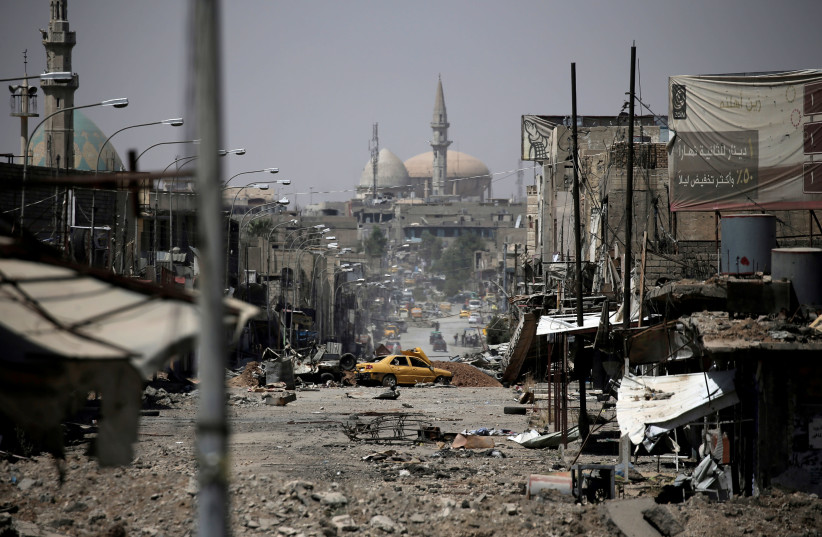Turkey used a drone to target a vehicle near Mosul in northern Iraq on Sunday, according to reports from the area. Rudaw, a media outlet in the Kurdistan region, noted that the drone strike left “at least five dead and two others injured, an official told Rudaw with the Kurdish counter-terrorism department confirming the attack shortly after.”
Turkey launched a new operation in northern Iraq in April and wants to launch a new military attack on Kurds in Syria as well.
The drone attack allegedly targeted the Kurdistan Workers Party, or PKK, which Turkey views as a terrorist group.
Ankara has been fighting the PKK for decades, but it has recently increased its attacks and operations in northern Iraq. Turkey has relied on drones in the last several years because it can then operate more freely in northern Iraq, further from Turkey’s border.
Turkey has maintained numerous small outposts and bases in Iraq since the 1990s, but they were generally in the mountains near the border. Turkey enjoys relatively amicable relations with the autonomous Kurdistan Regional Government.

The reasons for Ankara’s decent relations with Erbil, the capital of the Kurdistan Regional Government, have to do with politics and history. The ruling Kurdistan Democratic Party in Erbil also objects to the role of the PKK, especially because the PKK has operated in areas where civilian villages exist. This led to rounds of fighting with Turkish troops, which forced many Kurds to flee. However, cooperation only exists up to a point.
Turkey’s growing role is controversial. The fact that Turkey has targeted the Makhmour refugee camp and Sinjar, an area that suffered an ISIS genocide, increasingly makes it look like Turkey will never leave northern Iraq.
This is now an endless war for Ankara.
Sometimes the war is used for domestic propaganda, with Ankara claiming great victories over “terrorists.” However, these victories are largely mythical, and Ankara can’t seem to ever “defeat” the groups it is fighting. Instead, Turkey wants to expand operations.
Airstrikes near Mosul represent an escalation. Baghdad has often ignored battles so long as they take place in the autonomous Kurdish region. But federal troops and pro-Iran militias operate in the Nineveh Governorate around Mosul. As such, Turkey is bombing areas that are closer to Baghdad.
According to Rudaw, Nineveh’s Governor Najim al-Jubouri “later in the day said the drone that hit the area was Turkish and called on the Iraqi government to protest such actions to the Turkish government. News outlets of Iraq’s Iran-backed parties also said that the attack was conducted by Turkey. Ankara has not commented on the incident as of yet.”
Pro-Iran militias have increased their calls for Turkey to stop its attacks. In the past few months, there have been numerous attacks on a Turkish base near Bashiqa.
The attacks involved rockets and are apparently carried out by pro-Iran militias. One of these militias has taken a name linked to Yazidis, the minority once targeted by ISIS and which is now targeted by Turkey. However, it is assumed the militia is actually a stand-in for pro-Iranian militias such as Kata’ib Hezbollah.
Iranian-backed militias also target US forces in the Kurdistan region. This means Turkey’s operations have wider regional implications. Turkey’s leader is meeting with Iran and Russia this week and Turkey wants to launch a new operation in Syria. Turkey claims its new operation in Syria will also target “PKK terrorists.” Thus, Turkey is extending its endless war potentially in the two countries.
Al-Ain media in the United Arab Emirates has also reported on Turkey’s growing operations. Al-Ain reported on Monday that a Turkish soldier was recently killed in northern Iraq. That report claimed that this was the second Turkish soldier killed.
“The Turkish Ministry had previously announced in several statements the killing of more than 10 soldiers and two security guards in northern Iraq, since June 11 last year,” the report said.
